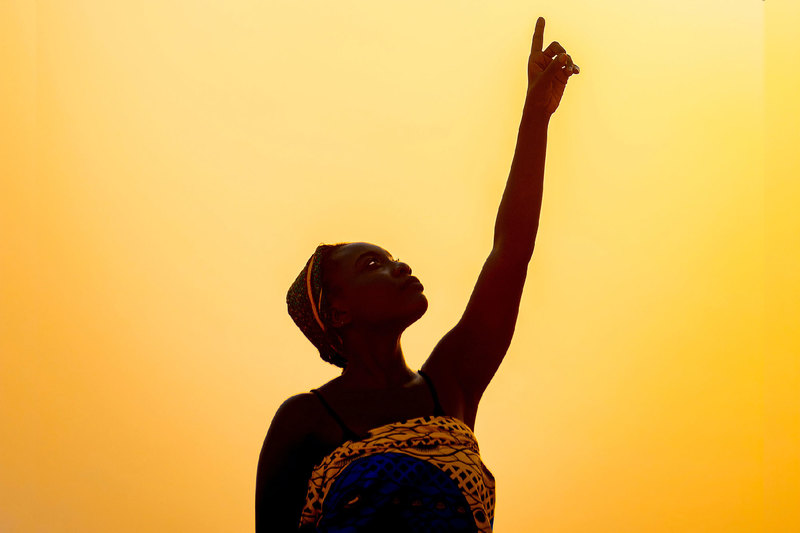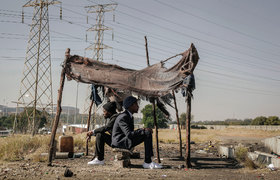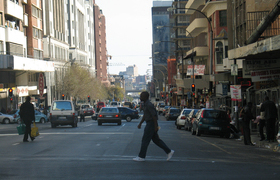Youth Month: Young Africans are key to continental free trade agreement
21 June 2021 | Story Helen Swingler. Photo Pexels. Read time 8 min.
The African Continental Free Trade Area (AfCFTA) agreement promises to be a game-changer for the continent’s economic and employment creation prospects, but its success and legacy will depend on across-the-board participation by the continent’s youth, said Dr Misheck Mutize.
Dr Mutize was speaking at the third session of the recent youth-centred Africa Day Symposium hosted by the African Union, the African Peer Review Mechanism (APRM), in collaboration with the University of Cape Town (UCT) and the Nelson Mandela School of Public Governance. Mutize is an APRM credit rating agency expert.
AfCFTA was created in 2018 and began trade in January 2021. Its headquarters are in Accra, Ghana, with Wamkele Mene serving as the first secretary-general. It is a flagship project of Agenda 2063, which is described as a “continental policy roadmap for inclusive, integrated growth and sustainable development in Africa”.
AfCFTA has a sizeable reach of 1.3 billion people in 55 participating countries, said Mutize. It represents a combined gross domestic product (GDP) valued at US$3.4 trillion and could be the catalyst to delivering 30 million Africans from extreme poverty. And, according to the World Bank, implementing the AfCFTA agreement could also help usher in the “deep reforms” the continent requires for long-term growth.
“Africans have to be able to produce our own products and distribute our own products.”
Standing in for Mene, the keynote speaker of the session, the organisation’s chief technical advisor, Prudence Sebahizi, said one of the biggest challenges would be mainstreaming the continent’s youth and other marginalised groups while removing obstacles and barriers. This requires significant policy reforms, trade facilitation measures, added value to goods and the diversification of local and export production.
Prioritise youth’s needs
“The participation is already there,” said Sebahizi. “That’s why we’re talking about youth mainstreaming. This means that any policy or programme we design must ask: How do young people benefit? How do women benefit? How do marginalised communities benefit? It’s that conscious effort to ensure young people’s needs are incorporated into the design of such policies. We must ask what the situation is for young people when it comes to accessing capital, exposure to education, innovation, and protecting innovation.”
Respondent Cindy Maphumulo said information dissemination and education are vital.
“Many of the young entrepreneurs we assist through coaching programmes don’t understand what the continental free trade agreement is; many are from rural areas and townships. So how do we produce youth [who] understand what the AfCFTA is and how they access markets?
“We must get the information out there and educate youth so that strategic partnerships are forged on the continent – from organisation to organisation and individual to individual – to make sure that young people are not left behind.”
Free trade is welcome, said panellist and entrepreneur Palmer Mutandiwa, the co-founder of Button Brothers, a high-end tailor and apparel manufacturer. “But whose products are being moved? Usually Asia’s, Europe’s or America’s. What value does that bring us as Africans? Africans have to be able to produce our own products and distribute our own products.”
“We need to add value to our products to create value in jobs and an opportunity to control the market.”
One example used was the mohair produced in the Eastern Cape.
“In South Africa, we produce 80% of that fibre that goes overseas to Japan and the United Kingdom. And we buy back the fabrics they make to make clothes. This doesn’t make sense,” Mutandiwa said.
“[Africans] get only a minimal benefit from the transaction. We need to add value to our products to create value in jobs and an opportunity to control the market.”
More than a trade agreement
With 70% of Africans under the age of 30, digital trade could address some of the challenges for youth, said Sebahizi.
“We know the COVID-19 pandemic has taught us the importance of digitisation of sectors of the economy to accelerate productivity and encourage innovation. And considering the growth of e-commerce and digital trade on the continent, we are encouraging African start-ups.”
Cognitive power is key to this.
“My advice for education will be to train our young people to have critical thinking skills, collaborative skills and creative skills to adapt to the fast-moving world of technology. We also know artificial intelligence is around the corner, which brings me to the issue of education of our young people in Africa.
“As a third instrument, we are focused on ensuring the harmonisation of trade instruments and processes, including customs, transit, trade, trade facilitation and product clearances. We also plan to harmonise standards and technical regulations on the continent to ensure these do not become barriers to limit trade.”
Change mindsets
To assist this process, AfCFTA developed an online mechanism to eliminate non-tariff barriers. There are also plans to develop the original value chains to accelerate trade, investment, and job and wealth creation in Africa.
“By harnessing the power of AfCFTA technology, talents and collaboration, we can leapfrog business growth and job and wealth creation in Africa. This is good news for the young people of Africa.”
Sebahizi said AfCFTA would work to enhance welfare across Africa, especially smaller economies, lifting 100 million Africans out of poverty, contributing to the continent’s economic growth by 7% and ending Africa’s dependence on aid.
Mutize said African women, major players in cross-border trading and who have been cited as best practice for African trade, had valuable lessons to share in making the AfCFTA agreement a success.
Respondent Seth Mulli of the African Youth Economic Forum agreed that marginalised groups – women and youth – played a significant role in realising Africa’s socio-economic aspirations. Political development in the past had seen youth at the helm of political change in countries such as Burkina Faso, South Africa and Nigeria, and pointed to the positive impact of young people on the continent.
However, it would be folly to see youth participation as a favour.
“This mindset has to change, and [youth participation] has to be seen as a right – it must be a mainstay when it comes to policymaking. We need to ensure that young people aged 15 to 35 are at sessions of this nature, giving decision-makers an opportunity to hear their thoughts and ideas. This is the reason we created the African Youth Economic Forum.”
In his closing remarks, Samson Itodo, the executive director of YIAGA Africa, a non-profit civic hub of changemakers based in Nigeria, and an alumnus of the Mandela School’s Emerging African Leaders Programme, said: “It is very clear from today’s session that Africa has huge potential, and this potential is domiciled in young people – and we need to harness this. We can do better than rejecting the status quo, given the vast resources that we have with human, financial and natural resources.”
 This work is licensed under a Creative Commons Attribution-NoDerivatives 4.0 International License.
This work is licensed under a Creative Commons Attribution-NoDerivatives 4.0 International License.
Please view the republishing articles page for more information.










